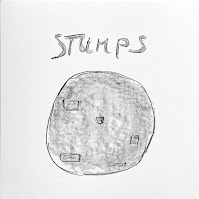Another
album of the 21st century mystical music series is “Mount Analogue”, which is based on the philosophy of G.I.
Gurdjieff. The extensive liner notes and the spine wrapper claim “Mount
Analogue”, which is named after an unfinished
novel by surrealist writer René Daumal (who
was one of Gurdjieff’s disciples) and which consists of one single 38-min.-track, as one of John Zorn’s file
card pieces although he claims that it is based on conventional notation.
Zorn is the composer and conductor of the music, the band is Cyro Baptista (percussion, prayer bells, vocals), Shanir Ezra Blumenkranz (bass, oud, gimbri, vocals), Tim Keiper (calabash, drums, percussion, orchestral Bells, vocals), BrianMarsella (piano, organ, vocals) and the ubiquitous Kenny Wollesen (vibraphone, chimes, vocals) – and again the musicianship is
tremendously great. Zorn’s projects often switch between mellifluous sweetness (The
Dreamers) and harsh repulsive brutality (Painkiller), but “Mount Analogue” might be attractive to fans of
his more avant-garde and hardcore sounds as well as to those who are more into
his easy listening compositions. The music could be described as mystical “Naked
City unplugged”, there are dozens of abrupt changes and peculiar sounds to keep
you hooked, there are tons of unexpected twists and turns, supported by the
again unconventional instrumentation. The musicians easily move between angular
new classical music, restrained mumbling and panting, 1950s film noir
soundtracks, Jewish or
Middle Eastern folk, the typical John Zorn exotica, jazz, lonely piano tunes,
or minimalist approaches. Every note is exactly at the right place, there is not one bell tone
too much, which creates a lush atmosphere on the one hand but the spooky and
creepy elements refer to a dark world also inherent in this music.
You can listen to “Mount
Analogue” here:

















1 comments:
I really like this long excursus on genres, places and stories. And, as Martin perfectly highlighted, there is some kind of universality in its structure. It can be really ethereal, but try to add some distorted guitar to the crescendos and you'll have a God Speed You Black Emperor's piece.
Post a Comment